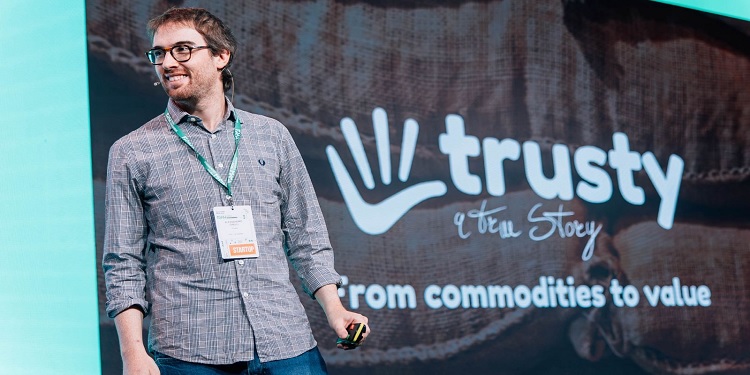In response to the mounting regulatory pressures within the European Union, particularly around sustainability and deforestation, a Bologna-based startup named Trusty has emerged with a blockchain-based solution to improve traceability in the agri-food supply chain. This technological intervention is particularly timely, given the enforcement of the EU Regulation against Illegal Deforestation (EUDR) and the Corporate Sustainability Due Diligence Directive (CSDD). Both regulatory measures demand greater environmental and social accountability across global supply chains.
EUDR, effective since 2023, prohibits the import of products linked to deforestation that occurred after December 31, 2020. Meanwhile, the CSDD compels companies to actively assess and manage environmental and human rights risks throughout their supply chains. In this context, Trusty’s platform offers a digital infrastructure capable of recording, verifying, and sharing immutable data concerning raw materials—especially cocoa.
From Farm to Blockchain: A Transparent Journey
Established in 2022, Trusty has already implemented pilot projects in countries such as Côte d’Ivoire, Colombia, and the Dominican Republic. The platform has tracked over 100,000 tonnes of cocoa and digitized the information of around 50,000 farmers. The system starts at the ‘first mile,’ where individual farming plots are mapped using satellite and drone technology. This geospatial data, along with information on production methods, certification status, and compliance records, is then integrated into a blockchain network.
This data can be accessed by every participant in the supply chain, from cooperatives and processors to importers and final distributors. For consumers, product packaging features a QR code that offers instant access to verified information about the cocoa’s origin and characteristics, enhancing transparency and enabling informed purchasing decisions.
A Tool for Regulatory Compliance and Competitive Advantage
Trusty’s founder and CEO, Alessandro Chelli, has emphasized that blockchain technology provides a robust method for ensuring the reliability of recorded data. By permanently storing details of who submitted what information and when, the platform offers a reliable audit trail. In an era where greenwashing concerns are widespread, such transparent and verifiable data could prove essential.
The platform has been designed to meet EUDR and CSDD compliance requirements while also integrating GS1 traceability standards and interoperable APIs. It features an accessible interface tailored even for regions with limited digital infrastructure, helping close the gap between advanced regulatory expectations and the realities of production in developing regions.
Costs, Incentives, and Market Dynamics
The cost of using Trusty’s system is estimated at about €5 per tonne of certified cocoa. However, industry data suggests that traceable, sustainable products can command price premiums as high as €500 per tonne. This creates a strong financial incentive for both local producers and international brands aiming to align with ESG (Environmental, Social, and Governance) benchmarks.
Notable partners already adopting the platform include well-known chocolate makers such as ICAM, Domori, Luker Chocolate, and Kaoka. Trusty’s work has also gained recognition from European innovation accelerators and featured in foodtech sector reports from Forward Fooding and Eatable Adventures.
Scaling Up Despite Structural Challenges
The broader market landscape appears receptive, with global investments in food traceability technologies surpassing €5 billion. At least 75 startups are exploring blockchain applications in the agri-food domain. However, systemic challenges persist. In many producing countries, inadequate internet connectivity, limited digital literacy, and infrastructure deficits pose significant obstacles. Additionally, differing regulatory standards between Europe, the U.S., and Asia complicate the implementation of a universally accepted model.
Nonetheless, Trusty’s scalable model stands out as one of the most advanced blockchain-enabled solutions for compliance in the food sector. As sustainability becomes not merely a strategic choice but a regulatory requirement in Europe, the need for transparent, verifiable systems is expected to grow. In this evolving market landscape, trust—more than cost—may become the defining factor in supply chain success.



